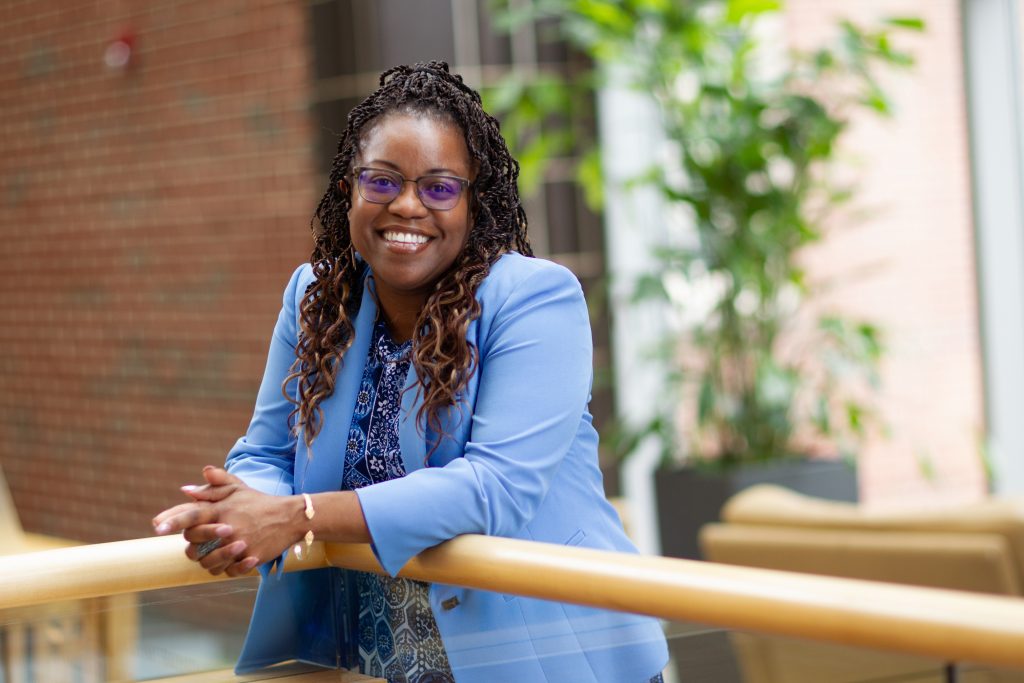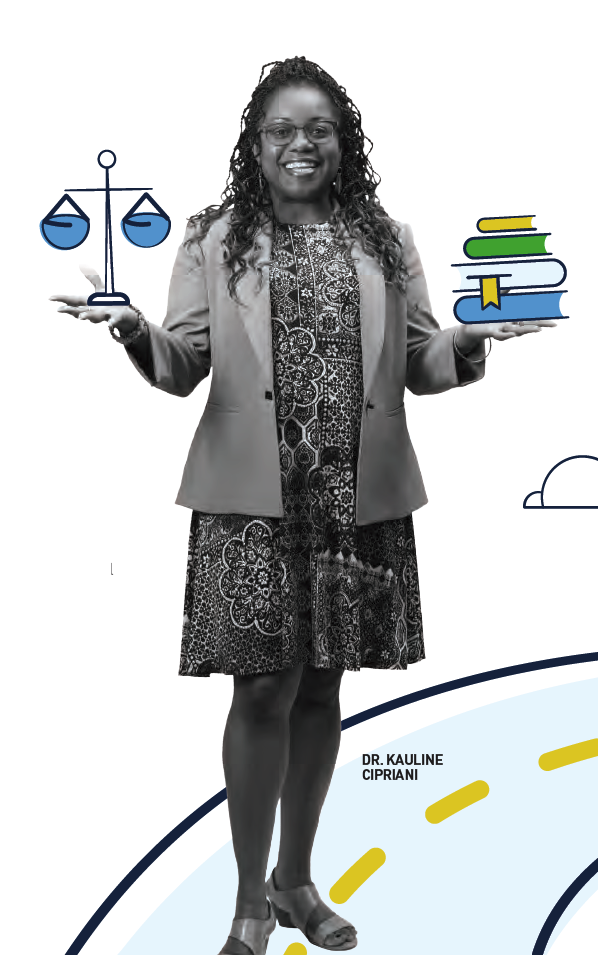Dr. Kauline Cipriani
October 8, 2018
Championing inclusive excellence
When you take a coffee break with Dr. Kauline Cipriani, you can learn a lot.
For example:

Dr. Kauline Cipriani
“You can have diversity without inclusion,” says the Gillings School’s new assistant dean for inclusive excellence, blowing gently on her tea, “but you cannot have inclusion without diversity.”
This is why she uses the phrase “inclusive excellence” when explaining her goals for the Gillings School. The term, coined by the Association of American Colleges and Universities, hints at how well-implemented, inclusive policies seep into every aspect of an institution, making it better from the inside out.
“Diversity is too often only a buzzword,” Cipriani says. “Rather than deciding that an arbitrary number of diverse students or employees is ‘enough,’ let’s train ourselves to keep inclusion central to every aspect of what we do. When we participate in a vendor bidding process – be it toilet paper or printing paper – is someone ensuring that female- and minority-owned businesses are participating?”
The example is not random, she says. “It’s indicative of how inclusive we are as an organization.”
Cipriani joined the Gillings School in February 2018. The path to her current role has been a winding one, which began when she left her home in Trinidad and Tobago to become a student at Prairie View A&M University, in Texas. When she arrived there, she was confident she would become a medical doctor. Instead, two summers as a research assistant in Purdue University labs led to a lifelong love of research and a doctorate in food microbiology.
 “The plan was to become a tenured professor and do research,” she recalls. “I have always loved academia. Life happened, though, and I found myself needing the stability of an administrative job. I was hired into Purdue’s Science Diversity Office, and eventually realized I’d landed right where I needed to be.”
“The plan was to become a tenured professor and do research,” she recalls. “I have always loved academia. Life happened, though, and I found myself needing the stability of an administrative job. I was hired into Purdue’s Science Diversity Office, and eventually realized I’d landed right where I needed to be.”
Cipriani became fascinated with diversity in higher education.
Soon after she completed her doctorate, she was asked to help develop the university’s first campus-wide strategic plan for diversity and inclusion. She also worked within academic affairs, becoming familiar with the inner workings of university administration.
 Over the next decade, during which she became assistant dean for diversity and inclusion at the Purdue College of Veterinary Medicine, she led many efforts in the pursuit of inclusive excellence.
Over the next decade, during which she became assistant dean for diversity and inclusion at the Purdue College of Veterinary Medicine, she led many efforts in the pursuit of inclusive excellence.
Then came her arrival at the Gillings School, where she leads efforts to enhance the School’s inclusive excellence.
“I really enjoy building new things,” Cipriani says. “I applied for this job because it offered a chance to be creative and to see initiatives grow and thrive over time. When I first started, I went on a listening and learning tour and heard from people all over the School. Based on those conversations, I identified two priorities to address if we’re to have a more inclusive environment at the Gillings School.”
First, she heard a need for more cultural competence in the classroom. Students expressed a deep desire for more faculty members who have expertise leading discussions on racial inequities, the health/wealth gap and other uncomfortable topics critical to making public health truly about health for all.
Encouragingly, Cipriani heard many faculty members express a wish for training in the exact same competencies.
She also learned of the need to address certain climate concerns at the School, which will help to ensure that all faculty, staff and students feel at home where they work and study.
“It says a lot that my role even exists,” she says. “I’m here because the Gillings School leadership wants to be proactive about inclusive excellence and recognizes it as a critical need in public health education and a key component for excellence.”
In addition to finding traction in her new career role, Cipriani, as a relative newcomer to Chapel Hill, has had to make new friends. Asked how she approaches getting to know a stranger, she replies:
I take a risk! I’d recommend it to everyone. Do something you normally never would, speak to someone you’d usually shy away from, and see if it’s as awful as you imagined … or if you actually enjoy it.
As human beings, we all have to fight against becoming set in our ways. The pull is always toward inertia, and our worthwhile challenge is to resist that pull and seek out opportunities to grow beyond our own expectations.
—Jennie Saia
Carolina Public Health is a publication of the University of North Carolina at Chapel Hill Gillings School of Global Public Health. To view previous issues, please visit sph.unc.edu/cph.
